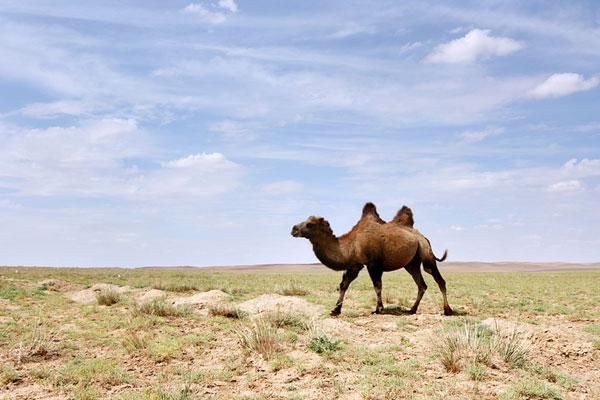
Woman Walks Across Gobi Desert, Into Record Books

Most people could barely stand to trek outside during the recent U.S. heat wave. But on the other side of the world, one woman was finishing a record-breaking trek across the punishing Gobi Desert.
Thirty-three-year-old Sucheta Kadethankar walked 1,000 miles (1,600 kilometers) across the Gobi in 51 days, 11 hours and 40 minutes, reported the Times of India. Kadethankar and six other team members completed their journey on July 15, and described their journey to the media on July 25.
Kadethankar credited her mental toughness for getting her through the trip. The Gobi isn't the hottest place on Earth , but 51 days under the desert sun takes its toll.
"I was suffering from flu for the last eight days because the average temperature was around 40 degrees Celsius [104 degrees Fahrenheit]," Kadethankar said at the press conference. "It was a test of sheer mental strength."
The Gobi Desert is the fifth-largest in the world. It covers northern China and southern Mongolia and is the largest desert in Asia. Vegetation is sparse, and the landscape ranges from rocky mountains to flat, arid deserts .
Kadethankar said the unchanging landscape of the desert turned the trek into a battle against monotony. Sometimes they would not see a tree for days.
The crew embarked from the Khongoryn Els, a large sand dune in Mongolia, at an initial pace of 16 miles (25 km) per day. The pace later increased to 25 miles (40 km) per day to break the previous record of 60 days.
Sign up for the Live Science daily newsletter now
Get the world’s most fascinating discoveries delivered straight to your inbox.
The team walked every day from 6:30 a.m. to 5:00 p.m. alongside camels and vans that toted their supplies.
How did Kadethankar train for the epic journey? By walking the 15 miles (24 km) from her house to her office and back for 6 months.
Try that during a heat wave.
Email OurAmazingPlanet staff writer Brett Israel at bisrael@techmedianetwork.com. Follow him on Twitter @btisrael.











